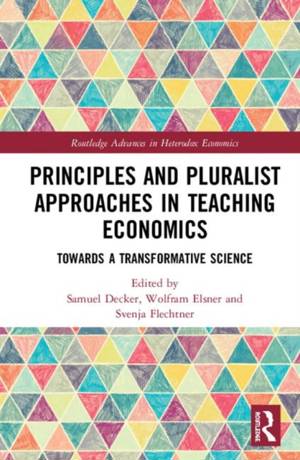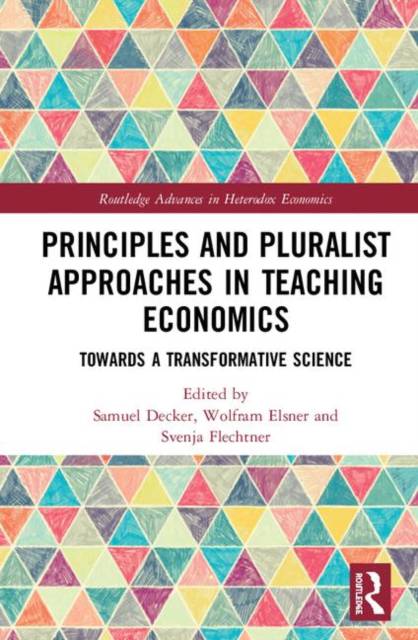
- Afhalen na 1 uur in een winkel met voorraad
- Gratis thuislevering in België vanaf € 30
- Ruim aanbod met 7 miljoen producten
- Afhalen na 1 uur in een winkel met voorraad
- Gratis thuislevering in België vanaf € 30
- Ruim aanbod met 7 miljoen producten
Principles and Pluralist Approaches in Teaching Economics
Towards a Transformative Science
Omschrijving
This volume is a state-of-the-art compilation of diverse and innovative perspectives, principles, and a number of practiced approaches of fields, courses, and methods of pluralist economics teaching. It fosters constructive controversy aiming to incite authors and commentators to engage in fruitful debate.
The complex economic problems of the 21st century require a pluralist, real-world oriented, and innovative discipline of economics, capable of addressing and teaching those complex issues to students from diverse perspectives. This volume addresses a number of key questions: Which models could be taught outside the equilibrium and optimality paradigm? Which methods could help to improve our understanding of the complex globalized economy? How can qualitative and quantitative methods be combined in a fruitful way to analyze complex economic problems? How can the academic isolation of mainstream economics that has developed over many decades be overcome, despite its attempted transdisciplinary imperialism? What role should knowledge from other disciplines play in teaching economics, and what is the relevance of transdisciplinarity? Through examining these issues, the editors and authors have created a pluralist but cohesive book on teaching economics in the contemporary classroom, drawing from ideas and examples from around the world.
Principles and Pluralist Approaches in Teaching Economics is a unique collection of diverse perspectives on the methodology and applications of pluralist economics teaching. It will be a great resource for those teaching economics at various levels as well as researchers and intermediate and advanced students searching for pluralism in economics.
Specificaties
Betrokkenen
- Uitgeverij:
Inhoud
- Aantal bladzijden:
- 348
- Taal:
- Engels
- Reeks:
Eigenschappen
- Productcode (EAN):
- 9781138037687
- Verschijningsdatum:
- 16/07/2019
- Uitvoering:
- Hardcover
- Formaat:
- Genaaid
- Afmetingen:
- 160 mm x 239 mm
- Gewicht:
- 635 g

Alleen bij Standaard Boekhandel
Beoordelingen
We publiceren alleen reviews die voldoen aan de voorwaarden voor reviews. Bekijk onze voorwaarden voor reviews.










